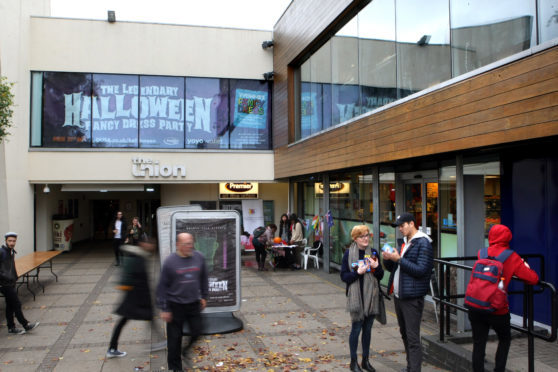Tayside students have backed 14 days of strike action at Scottish universities despite unions admitting it could cause “widespread disruption” for learners.
Members of the University and Colleges Union (UCU) will begin walkouts at eight Scottish institutions on Thursday in a row over pensions.
The 14-day escalating programme of action, expected to be carried out over a four-week period, will impact more than 145,000 students across the UK and has led to calls for compensation for fee-payers.
Students at London’s City University said they should be “proportionally financially compensated” due to the strike, claiming they would be entitled to payouts of almost £1,300 each if the walkouts last for the full 14 days.
Sean O’Connor, president of Dundee University’s Student Association (DUSA), said he would not try to stop fee-payers from seeking redress.
“We won’t be trying to stop any students asking for their fees back but right now we are focusing our efforts on making sure all sacrificed staff wages go towards the university’s discretionary fund,” he said.
“That means the money staff are giving up could go towards helping students who are facing real financial difficulty.
“We’re focusing on supporting staff but I would say to students, if they do want to look at claiming compensation, they should contact the university’s principal Pete Downes directly.”
NUS Scotland president Luke Humberstone said the union “stands in solidarity” with striking staff and claimed calls for compensation are evidence of the failed “marketisation” of education.
“In a system where students are treated like consumers, it’s no surprise there are calls for fee refunds,” he added.
The pension dispute centres on proposals to end the defined benefit element of the Universities Superannuation Scheme (USS) scheme, which campaigners say would leave a typical lecturer almost £10,000 a year worse off in retirement.
UCU Scotland official Mary Senior said staff had “no choice” but to take strike action and hoped students would pile pressure on universities to get back to the negotiating table.
A spokesman for Dundee University said it was “disappointed” with the decision to strike and would like to see a “sustainable, affordable” solution for both employee and employer.
He added that while the university’s terms and conditions state compensation is not payable in the event of industrial action, any detrimental effect to students’ learning may be taken into account in assessments and examinations.
A St Andrews University spokesman pledged to work “within the context of the national arrangements” to provide the most attractive and affordable pension possible”.
He added: “We shall do all we can to minimise adverse impact on our students, and we hope that UCU will take a similarly responsible stance.”










